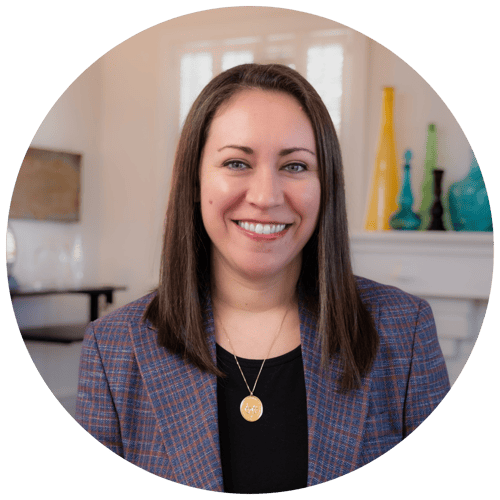WEBINAR
Understanding the Fundamentals of Human Trafficking
Speaker Spotlight

Jessica Brazeal
Jessica Brazeal is a Licensed Professional Counselor – Supervisor, EMDR Certified, an EMDR Approved Consultant and Trainer, and Co-Owner of The Haven Wellness Center.
She serves as Chief Programs Officer at New Friends New Life. Previously, Jessica served as the Director of Clinical & Professional Services at Genesis Women’s Shelter and Coordinator of Clinical Services of Restoration Ministries at Highland Park United Methodist Church.
She's provided therapeutic services to women and children survivors of domestic violence, sex trafficking, and sexual exploitation for over 15 years. Jessica has provided expert testimony in both criminal and civil courts in Texas in addition to previously serving on the faculty of the Institute on Domestic Violence and Sexual Assault’s Expert Witness Training Program.
Jessica received a Bachelor’s degree from Texas A&M University and a Master’s degree from Dallas Theological Seminary.
Q & A
In your experience, what are some common red flags or signs that someone may be a survivor of trafficking?
Red flags related to trafficking are potentially many, but the key is to watch for instances in which someone does not appear to have control over anything in the presence of another person. This can potentially be tricky as this could be true for domestic violence as well, but red flags for trafficking are often motivated by access and/or control over money.
If someone doesn't have access to their own money or their own documents like a drivers license or ID, this is concerning. If someone who looks potentially older has all the control and doesn't allow the person with them to speak, this is concerning. If children have access to clothes, possessions, or money that is new or doesn't make sense for them to have access to, this is concerning. If a young person suddenly has a much older boyfriend who is spending a lot of money on them, this is concerning.
For community members or professionals who want to get involved or make a difference, what resources or strategies would you recommend for supporting trafficking survivors and preventing further exploitation?
If you are wanting to get involved in this movement and supporting survivors, the best way to do that is by donating your time or money to the organizations that are currently serving this population in your area!
What advice would you offer to someone working with a survivor of human trafficking who exhibits violent or aggressive behavior, and how can they approach the situation with compassion and safety in mind?
It's important to understand that survivors of trafficking have had to be very protective of themselves in really violent and unsafe situations, so sometimes when they are feeling threatened that flight or freeze response kicks in their amygdala, and the fight response is part of what they have learned they need to do to keep themselves safe.
If you encounter a survivor who is acting in a way that feels violent or aggressive, the first and most important thing is just to not take that personally, to know that's actually not about you, and to help them return to a feeling of being safe. Often that looks like making yourself smaller and quieter. So, speaking in a low voice, sitting if you can, and not responding with anger yourself. Staying calm, very cool, very collected, and then helping that survivor to begin to feel safe so they can get back into their window of tolerance. Usually things like patterned, repetitive movement will help in that way as well.
How can trafficking affect the physical, psychological, and emotional well-being of survivors?
These survivors are essentially being controlled and kept captive by these traffickers, so that affects everything about their lives. It affects where they live, who they're around, their safety. They are truly trying to survive on a daily basis, and so it takes a toll. The longer that they're living in those conditions, the bigger that toll is.
Survivors that I've encountered and worked with are incredible. They are so smart, they are so resilient, and have been through so much. One of the ways of healing is really kind of looking at it in a holistic way to address all these things.
If attendees could take away only one point from your presentation on January 23rd, what would you hope it would be?
If you take away nothing else, I hope you will take away that the children that have been sexually abused and trafficked and then turn 18 are still the same survivors of a crime that they were when they were 17! They did not become consenting adults who are there by choice just because they are now considered an adult. Our society so often wants to say that the adults being trafficked or "working" in the sex industry are there by their own choice and yet so many of them were child survivors of abuse that just never got the support or interventions they deserved.
